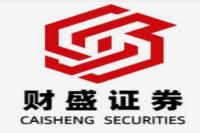Unlocking the Potential: A Deep Dive into Central Enterprise Value Management in China
Meta Description: This comprehensive guide explores the recent State-Owned Assets Supervision and Administration Commission (SASAC) guidelines on central enterprise value management, analyzing their implications, challenges, and future outlook for Chinese state-owned enterprises (SOEs). Keywords: Central Enterprise Value Management, SASAC Guidelines, SOE, China, Corporate Governance, Market Capitalization, Shareholder Value, Regulatory Compliance.
Imagine this: You’re a seasoned investor, keenly eyeing the burgeoning Chinese market. Suddenly, a seismic shift occurs – new, stringent guidelines governing the value management of central enterprises rock the landscape. This isn't just another regulatory tweak; it's a complete overhaul, demanding a paradigm shift in how SOEs operate and how investors perceive them. The stakes are incredibly high: billions of dollars, the stability of the Chinese economy, and the future of a generation of businesses. This isn't just about numbers on a spreadsheet; it's about fundamentally reshaping the strategic direction of some of China's most powerful companies. This in-depth analysis dissects the recent directives from the State Council's State-owned Assets Supervision and Administration Commission (SASAC), illuminating their impact on corporate governance, market dynamics, and investor confidence. We'll unearth the practical challenges, explore innovative solutions, and peer into the crystal ball to forecast the future of central enterprise value management in China. This isn't just a dry recitation of policies; it's a journey into the heart of China's economic engine, revealing the complexities and opportunities that lie ahead. Get ready to unravel the intricacies of this transformative moment in Chinese corporate history, a moment that will resonate for years to come. Buckle up; it's going to be a wild ride!
SASAC Guidelines: A New Era for Central Enterprise Value Management
The recent guidelines issued by the SASAC represent a monumental shift in how central enterprises (CEs) in China approach value management. No longer is it a mere suggestion; it's now a core strategic imperative, deeply integrated into the very fabric of their operations. This isn't merely about boosting share prices; it's about creating sustainable, long-term value for all stakeholders – shareholders, employees, and the nation itself. The emphasis on long-term strategic management signals a move away from short-sighted, profit-maximizing approaches, towards a more holistic and responsible framework. This is a game-changer, folks.
The SASAC's focus extends beyond simply achieving high market capitalization. The guidelines emphasize the importance of robust internal governance, transparent communication, and a commitment to regulatory compliance. This isn't just about window dressing; it's about building a foundation of trust and accountability. The inclusion of value management in performance evaluations for CE leaders is a powerful signal of the government’s commitment to this new approach. This carrot-and-stick approach is designed to incentivize responsible and effective management, while simultaneously deterring any unethical or illegal behavior.
The emphasis on "strict adherence to the law" is not a throwaway line. The guidelines explicitly prohibit activities such as manipulating information disclosure, manipulating stock prices, and insider trading. The consequences of violating these rules are severe, reflecting the government's zero-tolerance policy towards such malfeasance. This strong stance is crucial for building investor confidence and ensuring the integrity of the Chinese capital markets. Think of it as a forceful declaration: "We're serious about this; play by the rules, or face the music."
Key Aspects of the New Guidelines
The SASAC's guidelines encompass several key aspects:
- Long-Term Strategic Approach: Value management is no longer a short-term fix but a fundamental component of long-term strategic planning.
- Robust Governance Mechanisms: Strong corporate governance structures are essential to ensure transparency, accountability, and responsible decision-making.
- Enhanced Transparency and Communication: Open and honest communication with investors and other stakeholders is crucial for building trust and confidence.
- Regulatory Compliance: Strict adherence to laws and regulations is paramount, with severe penalties for violations.
- Performance-Based Incentives: CE leaders' performance will be evaluated based on their success in managing value, creating a powerful incentive for effective management.
Challenges and Opportunities
Implementing these guidelines presents several challenges. One key hurdle is the cultural shift required within CEs. Moving from a system potentially focused on short-term gains to a long-term, value-driven approach requires a fundamental change in mindset and operational practices. This necessitates substantial training, investment in new technologies, and a commitment to continuous improvement.
Another challenge lies in harmonizing the interests of various stakeholders. Balancing the needs of shareholders, employees, and the broader society requires careful consideration and effective communication. This requires deft navigation of complex relationships and potentially conflicting priorities.
Despite these challenges, the guidelines also present significant opportunities. By fostering greater transparency, accountability, and efficiency, CEs can enhance their attractiveness to investors, both domestic and international. This can lead to increased capital inflows, lower cost of capital, and ultimately, greater economic growth. Furthermore, a focus on long-term value creation promotes sustainable development and contributes to the overall stability of the Chinese economy.
Navigating the Regulatory Landscape: A Practical Guide for CEs
For CEs, navigating this new regulatory landscape requires a multi-pronged approach. This includes:
- Strengthening Internal Controls: Robust internal control systems are crucial for ensuring compliance with regulations and preventing unethical behavior.
- Investing in Technology: Leveraging technology to enhance data analysis, risk management, and communication can significantly improve value management efforts.
- Cultivating a Culture of Compliance: A strong compliance culture must be fostered throughout the organization, emphasizing ethical conduct and responsible decision-making.
- Enhancing Communication with Stakeholders: Open and transparent communication with investors, employees, and other stakeholders is essential for building trust and confidence.
- Developing a Long-Term Strategic Vision: CEs need to develop a clear long-term strategic vision that guides their value management efforts.
The Importance of Independent Boards
Independent boards play a crucial role in ensuring effective oversight and accountability. They provide a crucial check and balance, ensuring that management acts in the best interests of all stakeholders. This is not mere corporate governance theatre; it's a linchpin of the new regulatory framework. Independent board members bring diverse perspectives and expertise, challenging management assumptions and promoting better decision-making. Strengthening the role of independent boards is crucial to the success of the SASAC guidelines.
Investor Confidence and Market Impact
The SASAC guidelines are likely to have a significant impact on investor confidence. By promoting transparency, accountability, and compliance, the guidelines aim to reduce uncertainty and increase the predictability of CE performance. This, in turn, should attract more foreign investment and lead to a more efficient allocation of capital. However, the short-term market reaction may be complex and depend on various factors, including the specific actions taken by individual CEs and the overall macroeconomic environment. Yet, the long-term trajectory is towards increased stability and sustainability.
Frequently Asked Questions (FAQs)
Q1: What is the primary goal of the SASAC guidelines on central enterprise value management?
A1: The primary goal is to establish a long-term strategic framework for value creation that aligns with sustainable development goals and enhances the overall economic contribution of CEs.
Q2: How will the SASAC measure the effectiveness of these guidelines?
A2: The SASAC will likely utilize a range of metrics, including market capitalization, profitability, and corporate governance scores, to assess the effectiveness of the guidelines and the performance of individual CEs.
Q3: What are the penalties for non-compliance with the guidelines?
A3: Penalties for non-compliance can range from warnings and financial penalties to legal action and leadership change. The SASAC will take a firm stance against any breaches.
Q4: How will these guidelines affect foreign investors' perception of Chinese CEs?
A4: The guidelines aim to improve the transparency and accountability of CEs, which should increase investor confidence and attract more foreign investment.
Q5: What is the role of technology in implementing these guidelines?
A5: Technology plays a vital role in enhancing data analysis, risk management, and communication, thereby improving the efficiency and effectiveness of value management efforts.
Q6: Are these guidelines only applicable to listed companies?
A6: While the guidelines specifically mention listed companies, the principles and spirit are applicable to all CEs, regardless of their listing status. The emphasis on good governance and long-term value creation is universal.
Conclusion: A New Dawn for Chinese SOEs
The SASAC guidelines represent a watershed moment for central enterprise value management in China. They mark a decisive shift towards a more sustainable, transparent, and accountable model of corporate governance. While challenges undoubtedly remain, the potential for positive transformation is immense. The implementation of these guidelines will not only shape the future of Chinese SOEs but will also have profound implications for the broader Chinese economy and its role in the global landscape. This is a story unfolding in real-time, and it’s one worth watching closely. The future of Chinese state-owned enterprises is being rewritten, and it's a future built on the foundations of responsible management, sustainable growth, and unwavering commitment to the rule of law.



